Getting the proper tie length is an issue as old as etiquette. Even the very first tie, which was worn by Croatian mercenaries hired by Louis XIII, was required to be a particular length since it was part of a uniform.
Though modern ties are an optional accessory rather than a militant adornment, they are still governed by rules. True, you can break these rules without a drill instructor dressing you down but you will be silently judged as unprofessional, sloppy, lazy, by many suit-wearers.
Nobody wants that to happen, so we put together this post to answer the question of how long should a tie be. It can vary depending on several factors. In this post, we’ve covered all the bases. Then, once you’re comfortable with your knowledge of the correct tie length you can branch out and start putting your own flair on things.
Related Reading: A Guide to Button Down Collar Shirts
The Quick Answer
View in gallery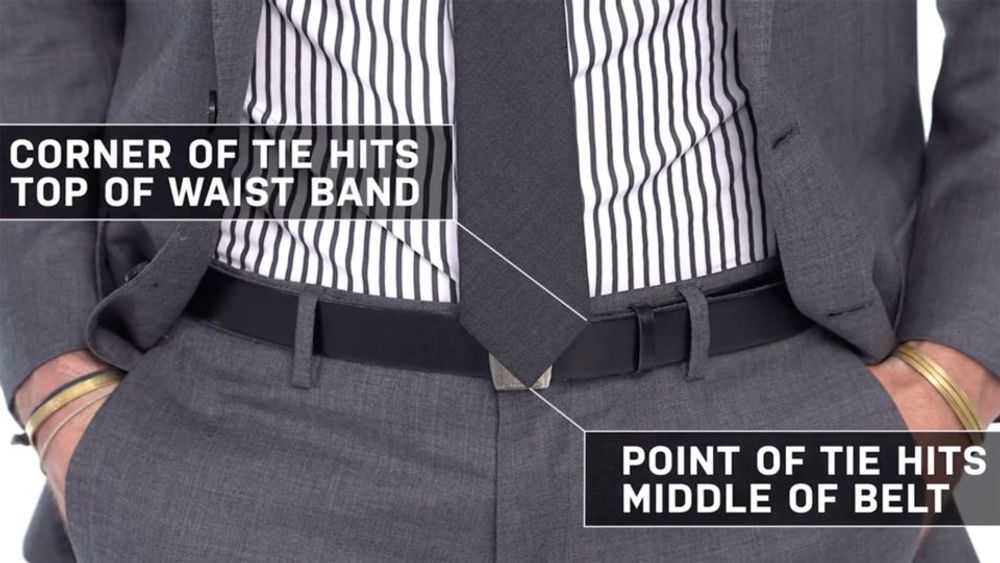
The fast and easy answer to how long your tie should be is this: The tip of it – whether it is a diamond-shaped or square-ended tie – should land right on top of your waistband or belt buckle when standing in your natural posture. With diamond ties, the corners where it folds should be level with the top of the belt or pant waist.
Whether you’re wearing a jacket or not, whether anyone sees the end of your tie or not, however wacky the design might be, it should always, 100% of the time be resting right on that belt. Never above nor below – unless, of course, it’s a bow tie.
A Tip on Tips
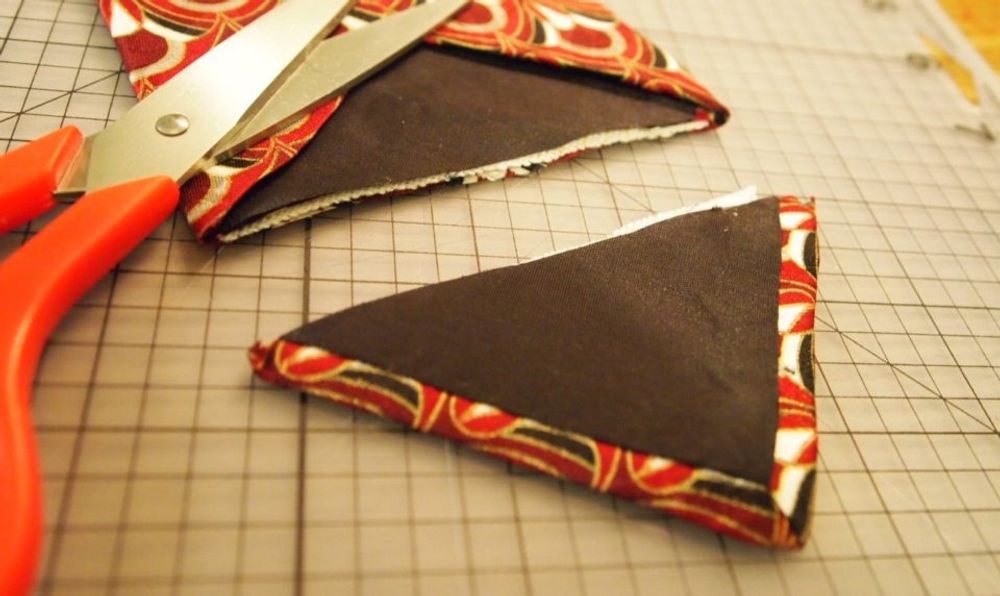
While most will know precisely what is meant by “the tip of your tie” others might not be sure. So that no man is left behind, we’ll be entirely clear: The tip of the tie is the visible front end of the tie. On diamond ties that is the point at the very end of the diamond. For square ties, it is the blocky end of the front.
Why Ties Should Be This Length

It was formerly thought that square ties should land above the belt, so as to create a definite line of demarcation between your torso and your waist. The problem was that it tended to make a man’s waist or gut seem larger than it is (or exactly as large as it is in the case of those of us who carry a little more around the middle). Like the buttons on a jacket, the point of a tie is to help have a slimming effect that draws the eyes inward and downward, effectively confusing the vision into thinking a man’s shoulders are broader and his stomach is narrower. It is also meant to draw attention to the genitals, not cover them up or point at his navel.
In addition to drawing the eye where it should, it is also helpful to note that a longer tie interferes with basic bathroom duties. Getting your tie caught in your zipper or accidentally having it drop in the way to be urinated upon is the ultimate in deal-breaker faux pas.
Standard Tie Length
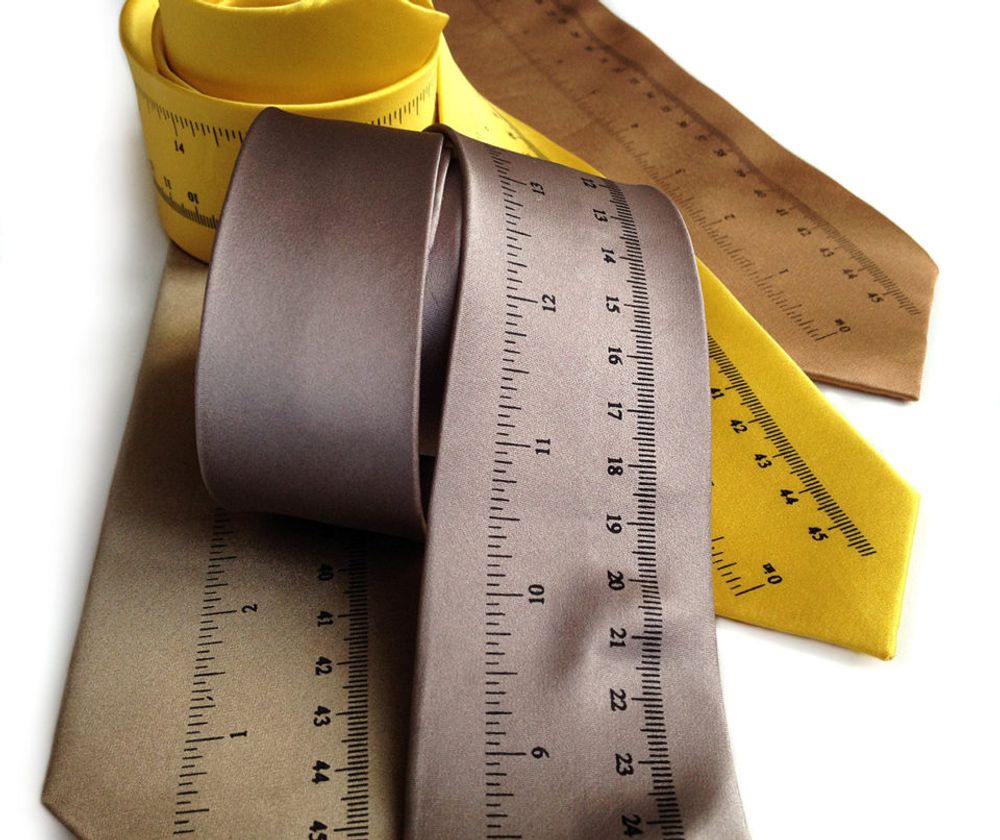
Most ties for men are 57-inches long. This is enough that the back end should be able to reach the keeper loop on the back of the tie that holds the two ends together. While the majority of ties are this length, when wearing a tie it should always hit your waist, even though every man is a different size.
Picking the Perfect Tie
Not all ties are created equal. In fact, the wrong tie can spell disaster. Your coworkers won’t be able to take you seriously if you can’t pull off a truly outrageous pattern (and trust us, few can.) Meanwhile, a tie that’s too monotone will make you part of the crowd.
A truly perfect tie is a statement piece. It conveys exactly what you want to say about your personality without throwing off the rest of your outfit. Take some time to shop around for the right tie, but be sure to keep your suit’s color in mind. Complementary colors are a good place to start. Alternatively, develop a color scheme and select which feature you want your tie to match: your pocket square, dress shirt, or heck, even your eyes!
We recommend Percival as a starting point. We’ve reviewed two ties out of their catalog for you to check out:
Percival Shoryu Tie
View in gallery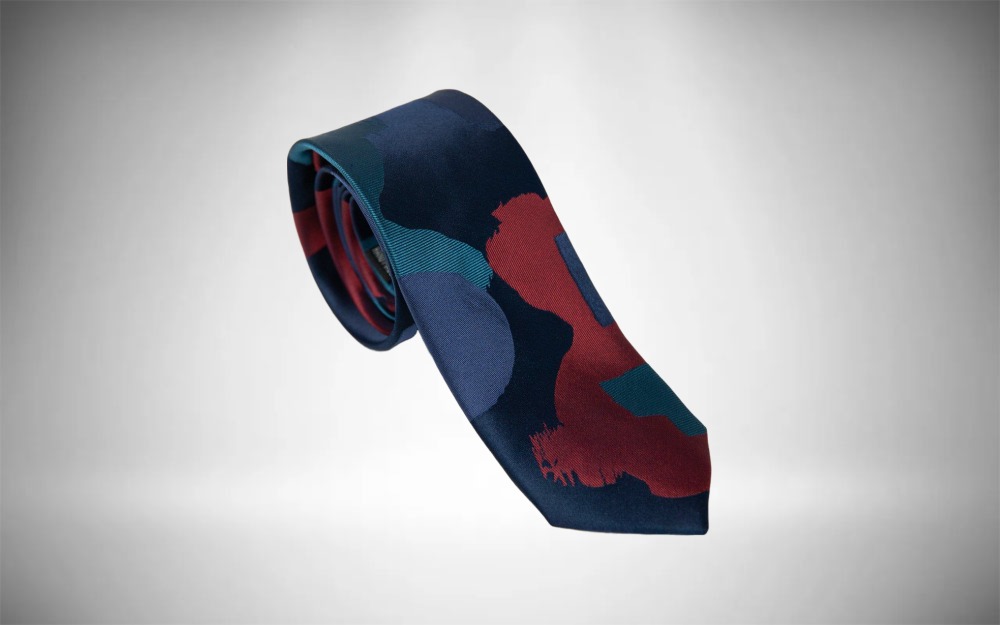
A good tie is made of 100% silk and the Shoryu Tie by Percival is a very, very good tie. Pleasantly colorful, the disjointed pattern lends to a powerful display. The style is neither too outrageous nor too plain to turn you into a fashion disaster. Plus, we love the quality. By working with pure silk, Percival avoids copouts to deliver a contemporary suit-and-tie look that’s sure to wow investors.
We recommend pairing it with a plain dress shirt and a solid-tone suit. Black, navy, and gray can work well here, but keep in mind the richness of your suit versus that of the tie.
Percival Ramen Tie
View in gallery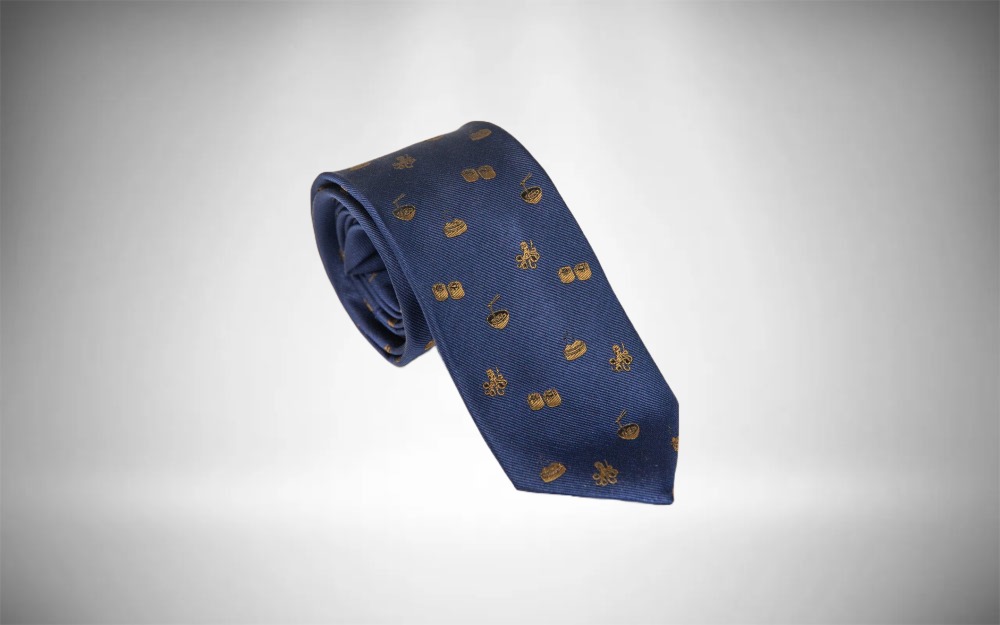
Shop Now
On a slightly more modest but no less fun note, we present the Ramen Tie.
Percival is nothing if not chock-full of personality and this tie says it all. The navy blue background draws the eye, while the small ramen bowls add a bit of levity. The Ramen Tie articulates the right kind of vibe for the “work from home” age of man. It shows that you have a sense of humor without distracting everyone in the Zoom call with your totally radical sense of taste.
Our styling recommendation is open to interpretation. However, we do suggest you go with another solid color suit. The Ramen Tie is fun, but it works best if you don’t play up the hijinks.
Proper Posture

Though each tie should reach to your waist, the problem that most men face is they don a rigid pose when they look in the mirror, sucking in the gut and straightening up their shoulders, which isn’t how they honestly look when standing normally.
Don’t try to kid yourself by standing at bolt-upright attention when checking your tie. Stand casually without slouching or hunching. If necessary, walk normally around the house for a few minutes, then pause in front of the mirror mid-stride to see where your tie lands. This should give you a barometer for what is your ordinary stance.
To this same end, don’t yank your pants up if they normally ride lower on your body. You’ll look far better by being realistic about your standard posture than looking snazzy with your body pumped up like a rooster, only to slump off to work.
Notes for Shorter Men
View in gallery
It’s rare that a fellow is so slight in stature that a standard tie won’t work for him with a basic tie knot like a Windsor or four-in-hand.. Since there is an exception to every rule, if you happen to find that your torso is too abbreviated to accommodate a regular tie, your options are to either go with a child’s tie – which we do not suggest – or take advantage of the extra fabric and give yourself a really powerful knot. By making a big, broad, elaborate choker, you keep people’s gaze higher on the body. This helps make you seem larger, particularly when sitting down.
Help for the Large
View in gallery
Bigger guys have a much harder time with ties than do smaller men, since 57-inches of fabric really isn’t enough if you’re much over 6-feet tall, or have a larger waistline that both interrupts the tie and pushes your pants lower. The good news for those built with more bulk or height is there’s ways to make it work.
- The first and easiest option is to get a longer tie. Since people are getting bigger all the time, the manufacture of ties that are 60-inches or more has gone up, making them easier to find at most big and tall stores, where you’re likely to be getting your clothes anyhow. You can also order custom-made ties that have whatever specified length you require.
- The second survival mechanism for dealing with a standard tie when you’re a Chap Of Unusual Size is to make that tie clip do the work for you. If you can’t get the knot you want and have your tie reach to the keeper loop on the back, put a clip on to lock it in place. Since tie clips are meant to go between the third and fourth button, it can hold the rear flap in place and still look good.
Never, ever, EVER let your tie back dangle loose because it doesn’t reach the keeper loop or shorten your tie. If necessary, put the tie clip a little higher to hold everything in place. If all else fails, go without a tie or keep your jacket buttoned up to hide your shame.
The Trouble with Tie Clips
View in gallery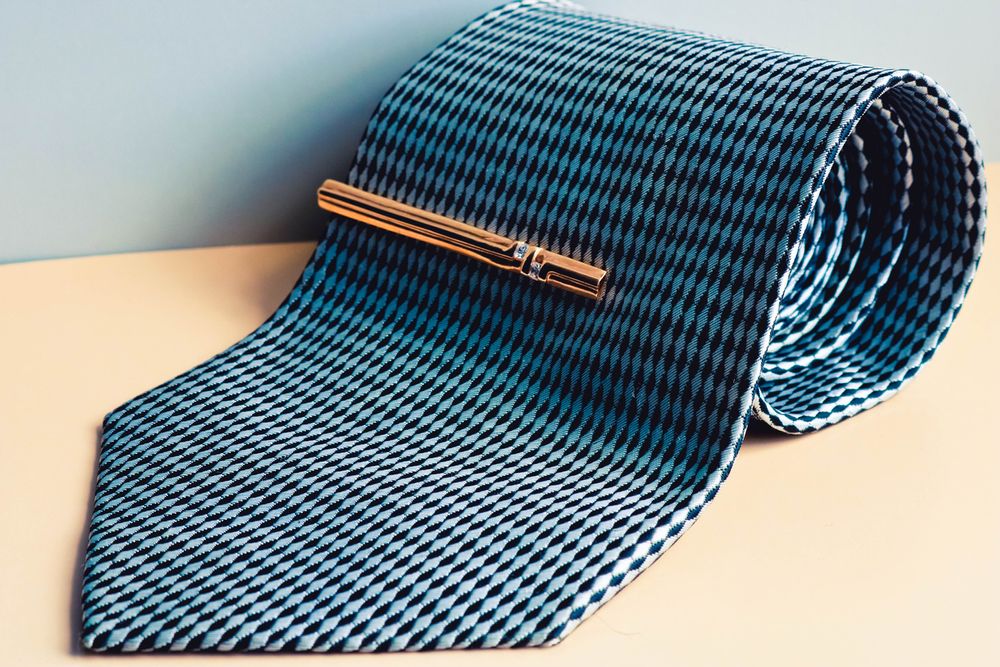
Tie Clips are a great resource for every guy and should be used as often as possible. They keep your tie out of your food and drink, they hold it down in the wind, and they make you look more professional. The issue with length is they can also pull your tie up if you don’t allow for enough fabric. If using a clip, then give yourself some space when tying so when it clips down and pulls up, it’s still sitting pretty.
Use a Mirror
View in gallery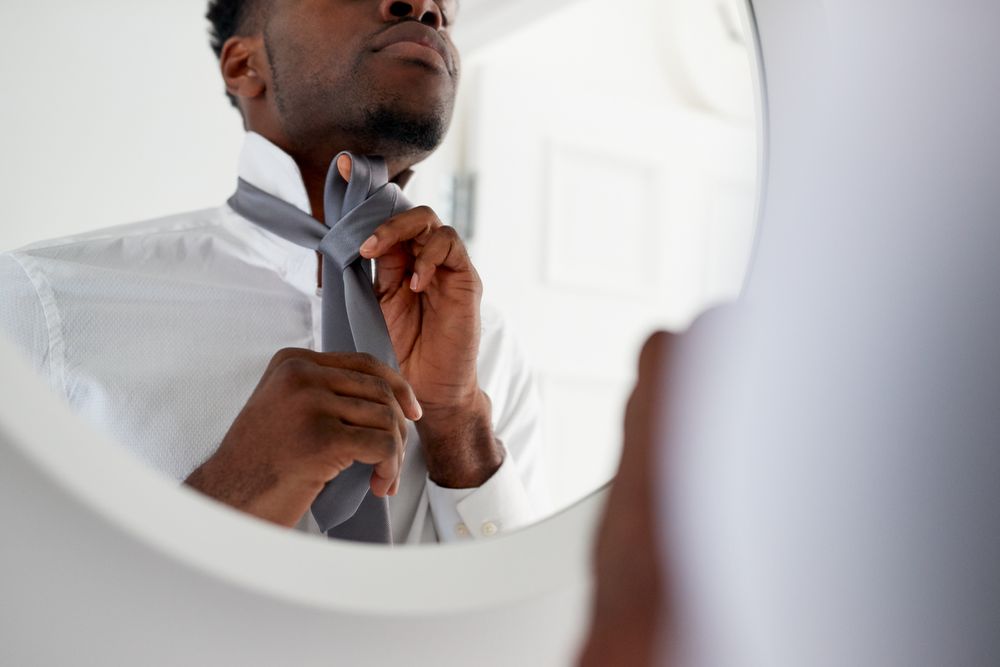
Lastly, don’t try to eyeball your tie length from above or feel it with your hands since either movement tends to alter how you stand. Check the reflection or reap the whirlwind.
Final Thoughts on The Proper Length of a Tie
There you have it. Everything you need to know and consider for the perfect tie every time. Once you get used to these rules, you can start to experiment and look for a bit of personal freedom and character expression.
Are you a daily tie wearer, or is it something you reserve for a special occasion? If you have any tie anecdotes or if you wear your tie in a very specific way for any reason, the comments are open. We love to hear from you all.




